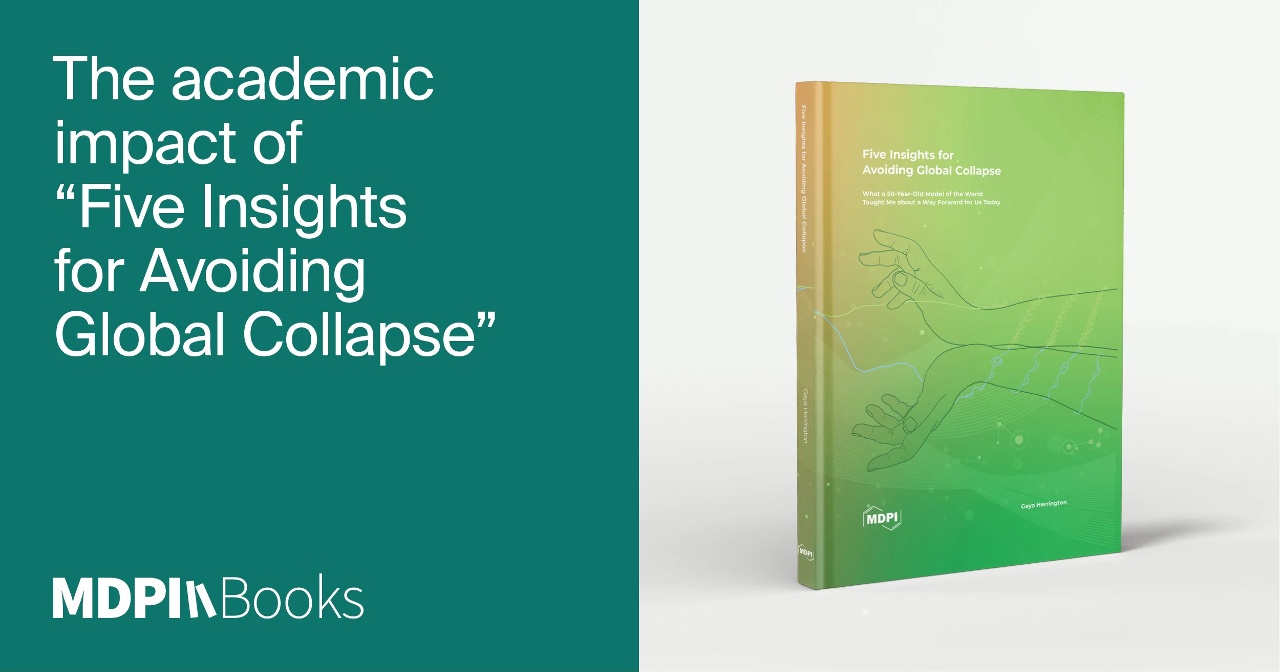
The Academic Impact of "Five Insights for Avoiding Global Collapse"
There are no greater challenges that we face today than climate change and mass inequality. Gaya Herrington’s open access monograph “Five Insights for Avoiding Global Collapse” is an eye-opening and stark exploration of looming environmental and social breaking points. Importantly, the book never loses sight of what we can still do to achieve a more sustainable future.
Based on her research into a 50-year model that predicted the onset of global collapse in our present moment, and further developed from her viral research in 2020, Herrington’s monograph is the wake-up call we need to move away from society’s current “business as usual” model.
It is no surprise that such vital research is having an impact on the academic community. Let’s take a look at just how Herrington’s book is influencing other research.
Rewilding of beavers as an approach to ecological restoration
Published in Frontiers in Conservation Science back in December 2023, “The Cornwell Beaver Project: navigating the social-ecological complexity of rewilding as a nature-based solution” by Mike Jones and Chris Jones investigates the potential ecologically positive effects of reintroducing beavers back into nature in the UK, such as the enhancement of the resilience of agricultural landscapes (i).
The article cites Herrington’s research into how economic growth destabilises feedback in nature and leads to a decline in the climate, soil, water, and biodiversity quality necessary for sustainable farming. Beavers, accordingly, help restore water courses with low biodiversity, turning them into wetlands with increased biodiversity in a relatively short period of time.
Recalibrating limits to growth model
Published in Journal of Industrial Ecology in November 2023, “Recalibration of limits to growth: An update of the World3 model” (Arjuna Nebel, Alexander Kling, Ruben Willamowski, Tim Schell) uses Herrington’s research on the 2005 version of the World3 model to recalibrate input parameters to better match empirical data on world development (ii).
The scope of the empirical data and procedures involved in Herrington’s research goes on to provide the basis for the new study’s input parameters, giving us a greater insight into when resource scarcity may come to impact society.
The importance of making sustainability accessible
Perhaps one of the reasons why “Five Insights for Avoiding Global Collapse” is generating discussion in the academic world could be the urgent reality of the topics discussed in the book, such as climate change, massive social inequalities, and environmental breaking points. Another reason could be the fact that this open access monograph is written in a more personable and accessible style than open science journal articles. Research conveying the complexity of climate change and social inequalities must be written in an accessible and clear way so that as wide an audience as possible can understand the challenges we face.
Herrington’s open access monograph is just one among many titles we have that explores the crucial topic of sustainability. We also have our Transitioning to Sustainability series, which showcases interdisciplinary research on the United Nation’s 17 Sustainable Development Goals.
[i] https://www.frontiersin.org/articles/10.3389/fcosc.2023.1252275/full